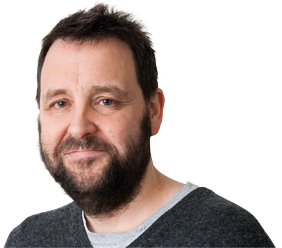There were then a few more relatively standard paragraphs and then this slightly less predictable ending: "This information comes from the USGS Earthquake Notification Service and this post was created by an algorithm written by the author."
That, right there, is the future. That article was written by a robot. The journalist involved wasn’t jolted out of bed, didn’t phone any earthquake boffins and didn’t file a special report before breakfast. Instead, he wrote a piece of software, called Quakebot, which takes feeds from the US Geological Service, automatically determines how newsworthy they are and writes posts on the website.
It’s cheap, quick and effective. The chief executive of a company that does a lot of this kind of thing, Automated Insights, says his business will write about a billion of these stories this year. And he’s not the only game in town.
Of course, not all stories will be read by huge audiences – most of them will be written for one specific person. They will be recaps of fantasy-football statistics, write-ups of web-analytics performance or summaries of real-estate news. They are taking structured data – normally numbers – and turning it into paragraphs we can read like it’s news. News that’s highly and individually personalised. It’s like the future everyone painted for advertising – but for information people actually want.
After years of watching the business fall apart, news people have started to develop a start-up mindset
This might be one reason that venture capitalists are finally getting interested in news. After years of watching the business fall apart, flailing around looking for models, news people have started to develop a start-up mindset. There are suddenly dozens of interesting new ventures – high-profile writers trying their own thing, new platforms, new forms, new beats, new business ideas.
People seem willing to invest. A lot of that is due to the leverage you can get if you’ve got a proven way of making "buzz-worthy" content: it’s about eyeballs and efficiency – more readers, fewer writers. That’s an even more interesting investment if you can further maximise efficiency by turning the drudge work over to software. Just remember if you write words for a living – you’ll be next. Uh oh.
Russell Davies is a creative director at Government Digital Service
@undermanager


